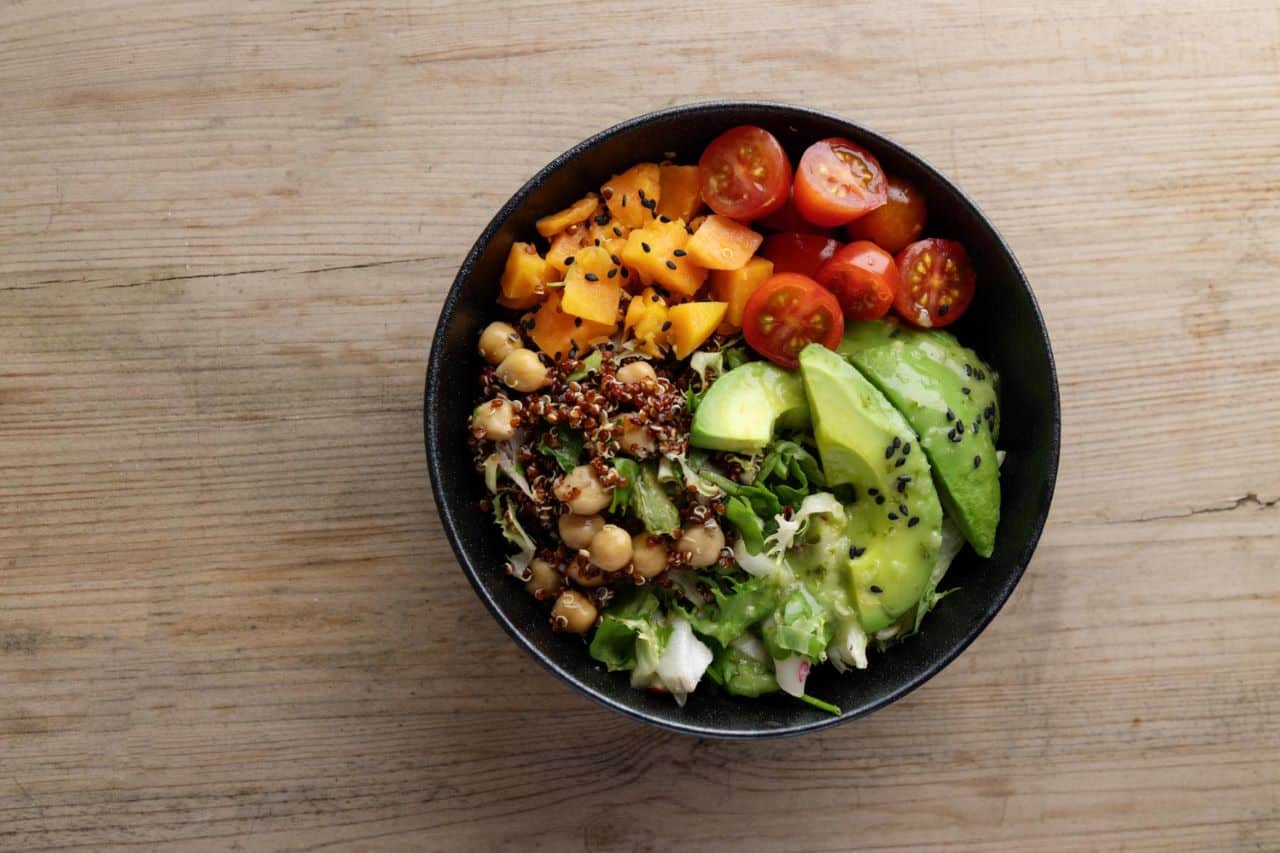What are the best types of vegan diets for you? One thing is for sure: The more closely you adhere to your chosen diet’s guidelines, the better your chances are at maintaining good health.
When most people think of vegan diets, they tend to picture a person who eats only fruits and vegetables. But that’s not the only way to be vegan, and it’s certainly not the healthiest.
In fact, there are actually several different types of vegan diets. Some focus on eating a lot of whole grains, while others emphasize protein-rich foods like beans and tofu. Still, others may encourage you to eat a lot of fruits and vegetables but also include milk products in your diet.
What is a Vegan Diet?
The vegan diet is a type of vegetarian diet that excludes all animal products and byproducts, including dairy, eggs, and honey. It is an environmentally conscious way of eating that focuses on plant-based foods and avoids animal-sourced foods.
Veganism is a lifestyle choice that can be adopted for several reasons, including environmental, health, and ethical concerns. Many vegans choose to avoid animal-sourced foods because of the negative environmental and ethical implications associated with the production of these foods. For example, raising animals for food requires a lot of land and water, and can contribute to deforestation, water and air pollution, and the loss of biodiversity.
Additionally, the mistreatment of animals in factory farms and slaughterhouses is a major ethical concern for many vegans. It’s important to remember that the vegan diet isn’t a magic bullet solution to health and weight loss. Like any other diet, it’s important to eat a variety of nutrient-rich, wholesome foods and practice healthy eating habits in order to reap the benefits.
What are the Types of Vegan Diets
There are a few different types of a vegan diets:
Raw veganism:
This diet is based on fruits, vegetables, seeds, nuts, and sprouted legumes. It excludes all foods of animal origin including meat, fish, and dairy products.
High raw veganism:
This diet is similar to raw veganism but includes soaked grains and some cooked foods. It excludes milk from plants such as soy or almond milk because these are considered processed foods.
Macrobiotic:
This diet is based on whole grains, beans, and vegetables with small amounts of fruit, nuts and seeds added for variety. It excludes all animal products including eggs and honey but allows sea salt to be added to food where it may be required for taste purposes only.
Vegan pescetarianism:
This diet is similar to a vegetarian diet but includes fish as a source of protein instead of meat or poultry while excluding other animal products such as eggs or dairy products altogether from the diet plan altogether entirely if not at all times too sometimes too always not either
What is the Importance of a Vegan Diet?
Veganism is a lifestyle that is becoming more and more popular as people become more aware of the health and environmental benefits of going plant-based. A vegan diet is a diet that excludes all animal products, such as meat, poultry, fish, eggs, and dairy products, as well as any products that contain animal-derived ingredients. Eating a vegan diet is not only beneficial for your health, but it can also help reduce your impact on the environment.
Eliminates the risk of chronic diseases
Studies have shown that eating a vegan diet can reduce your risk for many chronic diseases, including heart disease, stroke, type 2 diabetes, and certain types of cancer. This is because vegan diets are typically lower in saturated fat, cholesterol, and sodium, and higher in fiber, vitamins, minerals, and antioxidants. Eating a vegan diet is also associated with a lower body mass index, which can lead to better overall health.
Adds value to the environmental health
Animal agriculture is a leading contributor to climate change, and reducing your consumption of animal products can help lower your carbon footprint. It can also help conserve precious resources, such as water and land, which would otherwise be used to grow feed for livestock. Eating a vegan diet can also reduce the number of pesticides and fertilizers used in the production of animal products, which are harmful to both humans and the environment.
Lets you enjoy deliciousness despite vegan food!
Eating a vegan diet doesn’t have to mean sacrificing flavor or nutrition. You can find vegan-friendly versions of almost any food, such as plant-based milk, cheeses, and meats. There are also a variety of plant-based protein sources, such as beans, lentils, nuts, and seeds, which can provide all the essential nutrients your body needs.
So, eating a vegan diet is a great way to improve your health, and reduce your environmental impact. Whether you want to go fully vegan or just incorporate more plant-based foods into your diet. There are many benefits to be gained from making the switch.
What are the Benefits of implementing a Vegan Diet?
The vegan diet is quickly gaining traction as a healthy and responsible alternative to a traditional diet. As more people become aware of the environmental and ethical benefits of veganism, they are making the switch in droves. While some may still associate veganism with deprivation, this could not be further from the truth. In fact, there are numerous health benefits associated with veganism, such as improved cardiovascular health, weight loss, and reduced risk of certain types of cancer. Here, we will discuss the benefits of implementing a vegan diet in detail.
Enhances Cardiovascular Health
One of the primary benefits of a vegan diet is improved cardiovascular health. Studies have shown that following a vegan lifestyle can significantly reduce the risk of heart disease and stroke. This is due to the fact that vegans consume fewer saturated fats and cholesterol, which can lead to clogged arteries and other cardiovascular problems. Additionally, vegans generally consume higher levels of plant-based proteins, which are known to be beneficial for cardiovascular health.
Helps in weight loss
Weight loss is another benefit of veganism. A vegan diet typically consists of more fresh fruits and vegetables, which are naturally low in calories. Furthermore, vegan meals tend to be very filling, due to the high fiber content in many vegan foods. As a result, veganism can be an effective weight loss strategy.
Reduces the risk of cancer
Finally, veganism has been linked to a reduced risk of certain types of cancer. Many animal products contain hormones and chemicals that have been linked to higher rates of certain types of cancer. By eliminating these products from one’s diet, a vegan can potentially reduce their chances of developing these kinds of cancers.
As you can see, there are numerous health benefits associated with implementing a vegan diet. In addition to the benefits discussed here, vegans typically consume fewer processed foods and artificial ingredients. As a result, veganism can be a great way to improve overall health and wellness. If you’re considering making the switch to a vegan lifestyle, be sure to speak with your doctor first to ensure that you’re getting all the nutrients your body needs.
What are the Popular Vegan Diets?
As more and more people are becoming conscious of their health and the environment, vegan diets are becoming increasingly popular. Not only are they healthier, but they are also more sustainable and environmentally friendly. But what exactly is a vegan diet?
A vegan diet is a plant-based diet that excludes all animal products such as meat, dairy, eggs, fish, and honey. It emphasizes whole grains, beans, legumes, vegetables, nuts, and seeds. Vegans don’t consume any animal products or by-products whatsoever.
There are many different types of vegan diets. Here are some of the most popular:
Whole-Food Plant-Based Diet:
This type of vegan diet is based on whole plant foods such as fruits, vegetables, whole grains, legumes, nuts, and seeds. It eliminates all animal products and processed foods.
Raw Vegan Diet:
This type of vegan diet consists of raw fruits, vegetables, nuts, and seeds. Most raw vegans also avoid processed foods and anything made with animal products.
Low-Fat Vegan Diet:
This type of vegan diet emphasizes low-fat plant foods such as fresh fruits and vegetables, legumes, and whole grains. It also includes some nuts and seeds and is usually low in fat and calories.
High-Fiber Vegan Diet:
This type of vegan diet is focused on high-fiber foods such as beans, lentils, and whole grains. It also includes plenty of fresh fruits and vegetables.
No matter which type of vegan diet you choose, it is important to make sure you’re getting enough vitamins and minerals and eating a balanced diet. It is also important to get enough protein, which can be found in nuts, seeds, beans, and legumes.
Whether you’re just starting out or you’ve been vegan for a while, it is important to make sure that you are getting enough nutrients and that your diet is balanced. With a little bit of planning and some delicious vegan recipes, you can easily create a healthy and sustainable vegan diet.
Conclusion
There are various types of vegan diets that you can choose from. So make sure to do your research before starting any new diet plan. You have to make sure that it is suitable for your body type and lifestyle. So that you can achieve good health in the long run!
FAQs
Q: What is the difference between a vegan diet and a plant-based diet?
A: Vegan diets exclude all animal products, including meat, eggs, dairy products, and honey. Plant-based diets exclude meat but allow the consumption of other animal products such as dairy and eggs.
Q: What is the difference between a vegan diet and a raw food diet?
A: While both diets exclude meat, fish, and poultry, raw food diets also exclude cooked foods. This means that vegans can eat cooked foods such as grains or legumes while followers of raw veganism consume only uncooked fruits and vegetables.
Q: Is a vegan diet healthy?
A: While it’s true that meat, fish, and poultry are high in fat and cholesterol, this doesn’t make a vegan diet unhealthy. In fact, recent studies show that plant-based diets can reduce the risk of heart disease and Type 2 diabetes as well as reduce blood pressure and body weight.
Q: Do vegans eat eggs and milk?
Yes! Vegans can safely eat eggs and milk, but they do not consume any other animal products. This means that vegans do not eat meat, fish, seafood, poultry, or cheese.











